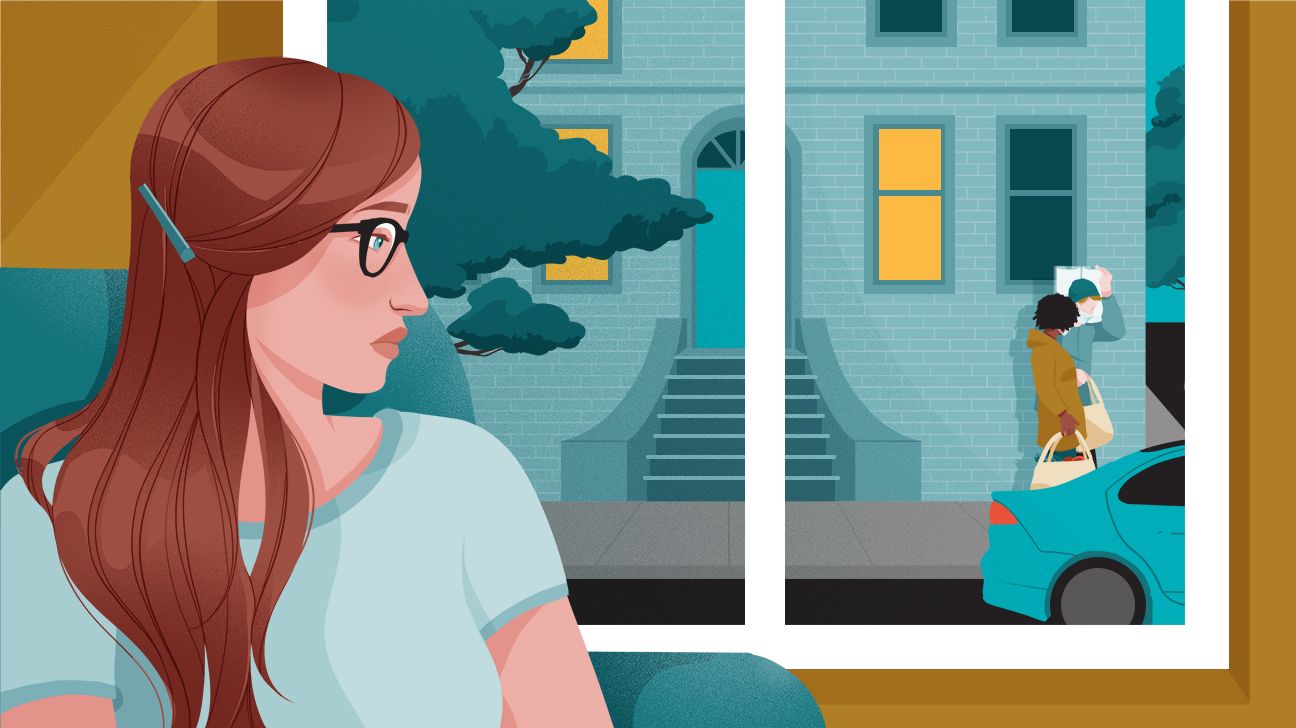Dear Able-Bodied Folks: Your COVID-19 Fear Is My Year-Round Reality
March 20, 2020
Content created for the Bezzy community and sponsored by our partners. Learn More

Every fall, I have to tell people that I love them — but no, I cannot hug them.
I have to explain long delays in correspondence. No, I cannot come to your Very Fun Thing. I wipe down surfaces I’ll be using in public with disinfecting wipes. I carry nitrile gloves in my purse. I wear a medical mask. I smell like hand sanitizer.
I ramp up my usual, year-round precautions with special flu-season measures. I don’t simply avoid salad bars, I avoid eating out at restaurants altogether.
I go days — sometimes weeks — without stepping foot outside my home. My pantry stocked, my medicine cabinet full, loved ones dropping off items I cannot procure easily on my own. I hibernate.
As a disabled and chronically ill woman with multiple autoimmune diseases who uses chemotherapy and other immune-suppressing medications to manage disease activity, I am well-accustomed to the fear of infection. Social distancing is a seasonal norm for me.
This year, it seems I am hardly alone. As the new coronavirus disease, COVID-19, invades our communities, able-bodied people are experiencing the same kind of fear that millions of people who live with compromised immune systems face all the time.


I thought being understood would feel better
When social distancing started entering the vernacular, I thought I would feel bolstered. (Finally! Community care!)
But the flip in consciousness is startlingly jarring. As is the knowledge that, apparently, no one has been washing their hands properly up to this point. It underscores my legitimate fears of leaving the house on a regular, non-pandemic day.
Living as a disabled and medically complex woman has forced me to become a sort of expert in a field I never wished to know existed. Friends have been calling me not just to offer help, or for unsolicited health advice, but to ask: What should they do? What am I doing?
As my expertise is sought on the pandemic, it’s simultaneously erased each time someone repeats, “What’s the big deal? Are you this worried about the flu? It’s only harmful to the elderly.”
What they seem to ignore is the fact that I, and others living with chronic health conditions, also fall into this same high-risk group. And yes, flu is a lifelong fear for the medically complex.
I have to find comfort in my confidence that I’m doing all that I need to do — and that’s all that can usually be done. Otherwise, health anxiety could envelop me. (If you’re overwhelmed with coronavirus-related anxiety, please reach out to your mental healthcare provider or the Crisis Text Line.)
We all have a responsibility to slow the spread of this disease
This pandemic is the worst case scenario of something I live with and consider on a year-to-year basis. I spend much of the year, especially now, knowing my risk of death is high.
Every symptom of my disease could also be a symptom of an infection. Every infection could be “the one,” and I just have to hope that my primary care physician has availability, that overburdened urgent cares and emergency rooms will take me in a somewhat timely manner, and that I will see a doctor who believes I am sick, even if I don’t look it.
The reality is, our healthcare system is flawed — to say the least.
Doctors don’t always listen to their patients, and many women struggle to have their pain taken seriously.
The United States spends twice as much on healthcare as other high-income countries, with worse outcomes to show for it. And emergency rooms had a capacity issue before we were dealing with a pandemic.
The fact that our healthcare system is woefully unprepared for the COVID-19 outbreak now seems clear not only to people who spend a lot of time frustrated with the medical system — but to the general public.
Though I do find it offensive that the accommodations I’ve been fighting for my entire life (like learning and working from home and mail-in voting) are being so freely offered only now that the able-bodied masses see these adaptations as reasonable, I do wholeheartedly agree with every precautionary measure enacted.
In Italy, overtaxed physicians caring for people with COVID-19 report having to decide who to let die. Those of us at a higher risk of serious complications can only hope that others will do all they can to help flatten the curve, so American doctors aren’t faced with this choice.
This too shall pass
Beyond the isolation many of us are experiencing right now, there are other direct ramifications of this outbreak that are painful to people like me.
Until we’re clearly on the other side of this thing, I can’t take the medications that suppress disease activity, since these therapies further suppress my immune system. That means my illness will attack my organs, muscles, joints, skin, and more, until it’s safe for me to resume treatment.
Until then, I will be in pain, with my aggressive condition unfettered.
But we can make sure the amount of time we’re all stuck inside is as brief as humanly possible. Whether immunocompromised or not, everyone’s goals should be to avoid becoming a disease vector for other people.
We can do this, team, if we just realize we’re all in this together.
Medically reviewed on March 20, 2020


Like the story? React, bookmark, or share below:
Have thoughts or suggestions about this article? Email us at article-feedback@bezzy.com.
About the author